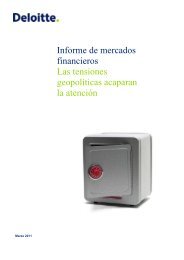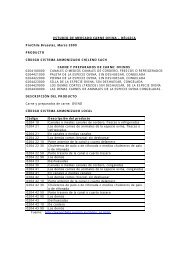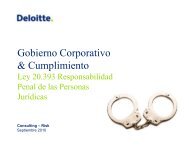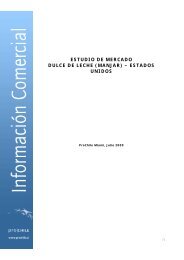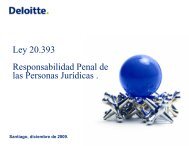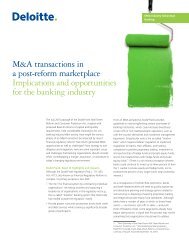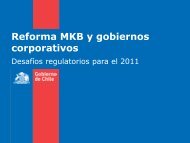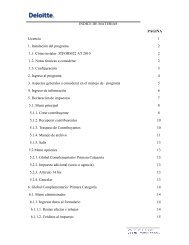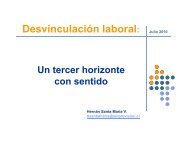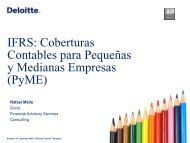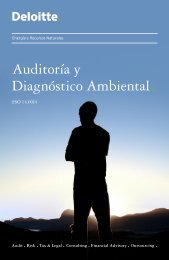Tax Advisers - Deloitte
Tax Advisers - Deloitte
Tax Advisers - Deloitte
You also want an ePaper? Increase the reach of your titles
YUMPU automatically turns print PDFs into web optimized ePapers that Google loves.
South Africa<br />
International assignments:<br />
local vs foreign pension funds<br />
Billy Joubert<br />
<strong>Deloitte</strong><br />
Johannesburg<br />
The mobility of staff with specialized skills is often crucial to<br />
the multinational companies that employ them, as such skills<br />
may only be required at a specific stage in the business cycle<br />
rather than on an ongoing basis. One obvious example would<br />
be the skills of individuals involved in prospecting for<br />
resources, such as oil or precious metals.<br />
Employees of whom mobility is required need to be looked<br />
after and secondments abroad should be arranged so as not<br />
to jeopardize their interests. Such employees need to be<br />
properly funded on retirement and adequately covered by<br />
life, disability and medical insurance.<br />
Employees generally desire stability and, in any event, are<br />
unwilling to be placed at a disadvantage (tax and otherwise)<br />
when moving countries. Mobile employees will resent having to shoulder greater risk<br />
than their non-mobile colleagues, so the retirement funding of seconded employees<br />
must be protected as much as possible from fragmentation, currency fluctuations and<br />
political upheaval.<br />
Pension funds do not migrate readily across borders and it may not be possible to find<br />
a satisfactory solution to some of the pension problems to which cross-border<br />
employee movement gives rise. Certain countries are reluctant to grant tax<br />
concessions for the pension contributions of highly mobile individuals because to do<br />
so may erode their tax base. For example, South Africa may be unwilling to give a tax<br />
deduction for the pension contributions of an individual who will be a UK resident<br />
(and will therefore pay UK tax) when he or she ultimately receive a pension.<br />
Both employee and employer contributions to a pension fund are generally tax<br />
deductible for South African tax purposes (subject to some limitations) and payments<br />
out of a pension fund are taxable (with relief provided for certain lump sum payments).<br />
As the government is keen to encourage skilled employees to come to South Africa and<br />
for people to retire there, proceeds from foreign pension funds are exempt from South<br />
African tax, provided the respective contributions were paid when the recipient was<br />
not working in South Africa. Apportionment is required in cases where some<br />
contributions are made in respect of services rendered in South Africa and some in<br />
respect of foreign services.<br />
Exchange control is really only a concern for South African residents and even they<br />
enjoy generous concessions in this respect. Temporary residents of South Africa can<br />
repatriate funds without restriction and outbound expatriates may retain foreign<br />
earnings and pensions offshore.<br />
An employee leaving South Africa who has a pension fund will need advice.<br />
Depending on the rules of the fund in question, the following options may be<br />
available:<br />
• continue contributing to the South African scheme;<br />
• freeze contributions and make use of a preservation fund; or<br />
• cash out, if this is possible, and pay the tax up front.<br />
If the last option is selected and the fund is cashed out before retirement, the South<br />
African tax consequences will be unfavourable. In any case, the facts must be examined<br />
carefully and the decision will ultimately depend on the individual’s plans and<br />
aspirations, and in particular on whether the individual intends to return to South<br />
Africa.<br />
179




